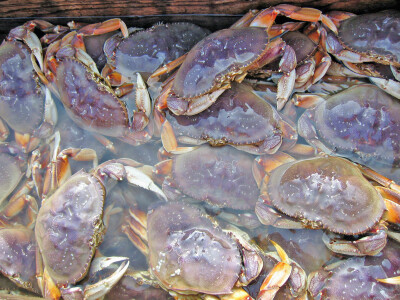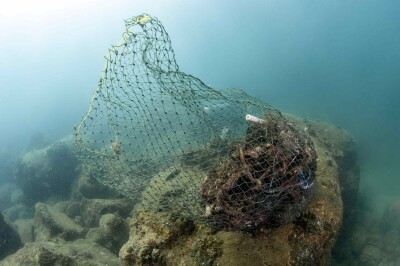A deal for you
As we travel to trade shows around the country, we often hear from readers that it is difficult to find National Fisherman on the newsstand.
I know this is frustrating, especially for longtime readers of the magazine who can remember when NF was easy to find in most coastal communities.
In the last couple of decades, however, the magazine distribution business has become dominated by a handful (or less) of very big players, and that has made it difficult for National Fisherman, a so-called niche publication whose appeal is for the most part limited to coastal states, to find much room on magazine racks.
Publications like TV Guide, Sports Illustrated and People sell millions of copies of each edition, and let's face it, the distributors know which side their bread is buttered on.
Compounding the problem for us is the cost of distribution. For every copy of National Fisherman that sells on the newsstand, several more are printed and shipped only to be tossed out at the end of the cycle.
Thus, newsstand distribution is not only frustrating, it's expensive, and last fall we decided that we'd had enough.
Fortunately, in the Internet age, we have options. And those options include offering readers a one-year subscription at $14.95 — a 70 percent discount off the newsstand price and a 25 percent discount off the price on those annoying little "blow-in" cards that fall out of every issue.
So jump on your computer and click on over to nationalfisherman.com, because that's the only place you'll find this deal. Our risk-free offer is on every Web page on our site.
(By the way, we do have direct relationships with a handful of newsstands here and there and will continue to service those accounts, so if you continue to find the magazine on the rack, by all means support your local vendor.)
In any case, thanks for reading National Fisherman.
* * *
As regular readers are aware, I am not a fan of the Marine Stewardship Council and its eco-labeling program to certify wild harvest fisheries as sustainable.
As far as I'm concerned, there can only be one certifying agency for the U.S. exclusive economic zone and that's the National Marine Fisheries Service.
I realize that several U.S. fisheries have bought into the MSC program. It's all about political cover: these fisheries were all sustainable long before the MSC came along and were in a position to pay for eco-blessing.
The MSC recently announced it will reconsider its 2006 decision not to offer certification to seafood products produced through aquaculture.
In the nearly 18 months since that decision, the MSC says, "we have received an increasing number of requests for the organization to engage in aquaculture."
As someone with little use for the MSC, I suppose I ought to welcome this as a development that could spell the end of MSC credibility — farm-raised fish may be fine in its place, but it is not the equal of wild harvest fish, nor will it ever be.
But it isn't that simple. The MSC owes whatever credibility it has to Alaska salmon, Pacific halibut and other fisheries whose sustainability is beyond question. In other words, the eco-label tells the public what it already knows.
Lump in farm-raised catfish, pond shrimp and other aquacultural products and the MSC label will lose its cachet, and so will wild-harvest fish in the eyes of those consumers who put their faith in labels — which is all too many of them.
The MSC says that standards that can be applied to aquaculture have "progressed significantly since 2006."
What could be more meaningless than a standard for aquacultural sustainability? You seed the pond (or pen) with fish, you feed them, you sell them, you put more in.
I'll grant you there are sustainability issues around the aquacultural use of forage species, but I think our overriding concerns have to do with water quality, environmental degradation, escapement, disease, the use of antibiotics and the like.
Nonetheless, the MSC says that because of the "growing need for aquaculture certification" it has commissioned a "detailed and comprehensive stakeholder analysis to review its 2006 decision and to ask if the MSC should seek to get involved in aquaculture certification."
It is not lost on the MSC that ginger footsteps are called for, and the organization says it will consider whether it "should run such a program itself, form a joint venture to manage such a program, or merely provide certain services for such a program."
This language suggests to me that MSC involvement in certification of farmed fish is an all-but-forgone conclusion, but that the outfit is uncertain how its new franchise will play.
It is right to be worried.






